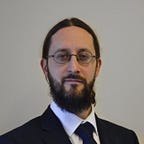Interview with Dr Josué F. Martinez Hardigree
This is part of a series of interviews with academics. Find out more about Woolf and the academics who are driving research forward at woolf.university.
1. Josué, last year you were conducting research in materials science in the Department of Physics at the University of Oxford. You are now Director of Technology at Agira Photonics in Boston, a startup developing flat lenses for lighting and displays. Could you briefly tell us about your research interests and the technological challenges you wish to address in your startup?
I’ve been interested in organic electronics since my freshman year at MIT. Being able to build circuits, LEDs, and solar cells with molecules is fascinating, and figuring out how charge moves in molecules is what motivated me to pursue a PhD and then a postdoc in complementary areas of this subject. My postdoctoral research at Oxford focused on studying organic molecule-based solar cells at two critical time points in a device: first during the manufacturing process, when the device is still being assembled layer-by-layer, and then much later after aging of the full solar cells under illumination and heat. Our team relied on several lab-scale deposition systems that enabled us to mimic the manufacturing processes that companies like Samsung or Heliatek use when they make phone displays or solar panels. We worked closely with industrial partners including Merck and Kurt J. Lesker Co. on various aspects of these studies, including the building of a special chamber for conducting these studies at Diamond Light Source, the UK synchrotron. Working with industry and understanding their technical needs helped shape our research towards problems right at the boundary between applied physics and real manufacturing. This close interaction with industry, coupled with the experience of helping establish a new laboratory, really facilitated the transition to Agira. It also helped that the founder of Agira, Bal Dhar, and I worked very closely during our PhD’s at Johns Hopkins over several years!
My role at Agira is Director of Technology, where I manage our ongoing R&D efforts while developing the medium- and long-term manufacturing processes for our new micro-optics technology. Our optical films, which are basically flat lenses made of plastic materials, are designed to extract more light from a light source and direct it where we choose. This source can be anything from the sun, down to a single pixel on a phone display. At the moment we are using these films to bend light to very high angles and enable a new compact solar thermal concentrator with funding from the Department of Energy’s SunShot Initiative. This concentrator will help manufacturers like breweries and dairy processors access the heat sources they need for boiling water and pasteurization, while reducing their consumption of natural gas. In the process we’ve begun to market films based on our micro optics architecture to the LED lighting industry, where our films give lighting designers the freedom to play with new interesting shapes and forms, while still meeting the energy efficiency demands of architects and building tenants.
2. What opportunities from the Woolf platform most excite you and why?
There are many aspects of Woolf that should be exciting to everyone. In the last decade, online education has helped unlock greater opportunities for self-learners, many of whom have the drive for learning but may not have the financial resources to attend an elite university. You can see how MOOCs have done a great job with enabling autodidacts from around the world gain guidance on the subjects they are pursuing. But in the process it’s become clear that the personal, one-on-one aspect of being in a classroom can often be critical to getting students the last mile of learning, to that full 100%. In particular in courses where debate and dialogue are essential to gaining insights into the material, most online courses would fall short. Anyone who has compared a text message conversation with a face-to-face meeting would probably agree that they two are nigh comparable. The interpersonal experience is a big factor in what makes elite schools elite, being able to engage a world expert directly, and being able to spar with your fellow students. An important part of learning a subject is talking it through, being challenged on its axioms, debating it, and solving problems on the spot in front of other people. I think Woolf’s combination of online learning with Oxbridge style tutorials will address these challenges much better than anywhere else, and close the gap between what existing online programs offer and what students at brick-and-mortar universities get. And in doing so, Woolf has the best chance of eliminating the existing socio-economic bias against online programs and degrees, which carries far deeper and longer-term benefits to society.
On a personal level I think the combination of tutorial-style online learning will benefit professors and students in quality of life, as well. I’ve never been a morning person, and I’ve met more than my fair share of academics who do their best work in the evenings. With smaller numbers of students to coordinate, the potential to optimize for students’ and professors’ optimal performance schedules [or their global time zones] will be a benefit to all parties involved.
Lastly, trust is an issue on everyone’s mind. Universities lately have been unfairly targeted as institutions not worthy of the public trust, who serve the few, and who are accountable to no one. In reality they have been unfairly targeted by propagandists and populist politicians because they promote the ideals of free discourse and enquiry into all subjects. Free enquiry has always been very disconcerting to people whose objective is to blur the lines between truth and fantasy. Woolf’s framework is certain to impact how universities around the world consider their own approach to trust, and how best to serve society, in the coming decades.
Learn more about the Woolf project and the people involved on the Woolf website.
